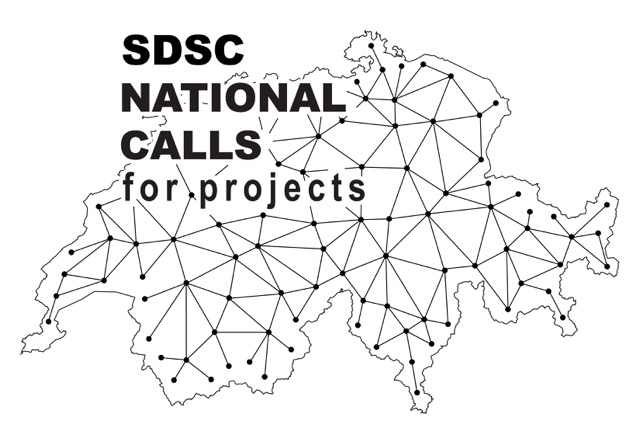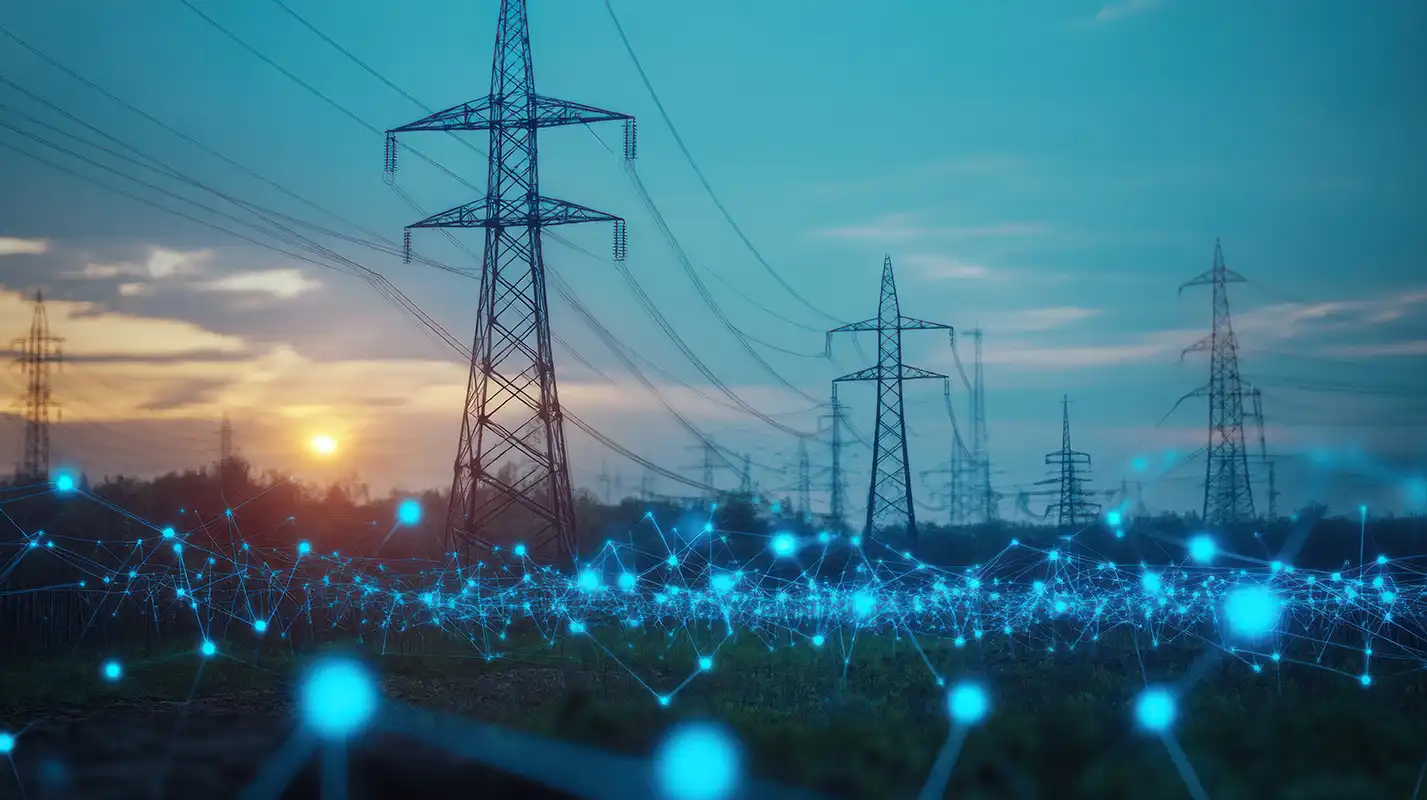
SPEED2ZERO
Sustainable pathways towards net zero Switzerland

Abstract
Climate change has a growing and noticeable impact on our society and the ecosystems, including biodiversity. In Switzerland, it also affects the reliability of our energy supply. More frequent and intense weather events, like heatwaves, heavy rainfall, or dry spells, combined with changing patterns in water availability, especially for hydropower, may lead to energy supply instability. Through the SPEED2ZERO initiative, we are using advanced machine learning tools like generative adversarial networks (GANs), normalizing flows, diffusion models, neural ordinary differential equations (ODE) approaches, as well as Earth System Model emulators to model how temperature, rainfall, and extreme weather might change in the future. These tools can learn from detailed climate data and generate new, realistic weather patterns more efficiently than traditional methods. The project will provide crucial inputs for modeling platforms and enable the generation of “climate storylines”, i.e., realistic examples of extreme situations like periods that are exceptionally hot and dry at the same time.
People
Collaborators


Maxim joined the SDSC as a Senior Data Scientist in September 2023. He is interested in developing practical Machine Learning tools and deriving actionable insights for complex real-world challenges. He has worked on a variety of topics in generative AI, computer vision, and deep learning theory, with practical applications in different areas like object detection in environmental science or data-driven discovery of novel molecules in chemistry. Maxim holds a Ph.D. in computer science from the University of Basel and a B.Sc. as well as an M.Sc. in physics from ETH Zurich.


Shirin obtained her PhD in Data Science from ETH in 2024 where she focused on evaluation of high-dimensional probabilistic generative models with sequential sampling algorithms. As a Marie Skłodowska-Curie fellow, she had the opportunity to visit and collaborate with researchers at the Machine Learning groups at UC3M and Eurecom, gaining experience in parameteric and non-parameteric probabilistic models, stochastic differential equations, and optimal transport approximators. Shirin has a keen interest in studying complex stochastic dynamical systems and their application to climate and environmental sciences.


Michele received a Ph.D. in Environmental Sciences from the University of Lausanne (Switzerland) in 2013. He was then a visiting postdoc in the CALVIN group, Institute of Perception, Action and Behaviour of the School of Informatics at the University of Edinburgh, Scotland (2014-2016). He then joined the Multimodal Remote Sensing and the Geocomputation groups at the Geography department of the University of Zurich, Switzerland (2016-2017). His main research activities were at the interface of computer vision, machine and deep learning for the extraction of information from aerial photos, satellite optical images and geospatial data in general.


Guillaume Obozinski graduated with a PhD in Statistics from UC Berkeley in 2009. He did his postdoc and held until 2012 a researcher position in the Willow and Sierra teams at INRIA and Ecole Normale Supérieure in Paris. He was then Research Faculty at Ecole des Ponts ParisTech until 2018. Guillaume has broad interests in statistics and machine learning and worked over time on sparse modeling, optimization for large scale learning, graphical models, relational learning and semantic embeddings, with applications in various domains from computational biology to computer vision.
description
Motivation
Climate projections on regional scales are indispensable for deriving successful policies to address challenges related to energy, biodiversity, and climate change illustrated in Figure 1. However, typical global circulation models (GCMs) simulate climate variables like temperature or precipitation on spatial resolutions of 100 to 300 km and, thus, can only provide coarse estimates. To include regional-scale processes and local characteristics, regional climate models (RCMs) dynamically downscale outputs of GCMs to higher spatial resolutions of typically 10 to 30 km. Still, these RCM simulations can be computationally demanding and exhibit biases in the model prediction compared to actual temperature and other climate variable observations.

Proposed Approach / Solution
Firstly, we address these shortcomings by developing multivariate generative downscaling approaches to generate regional-scale climate patterns from coarse-scale GCM inputs. We use advanced approaches based on GAN or diffusion models and extend established methods to produce plausible high-resolution maps of important climate variables like average temperature or total precipitation, as shown in Figure 2. Secondly, we develop methods that allow targeted generation of extreme conditions. For this, we extend state-of-the-art approaches like ClimODE to generate particularly hot or cold temperature simulations, with an example of global average temperature given in Figure 3.


Impact
Machine learning is becoming more critical in climate modeling. With our work we contribute state-of-the-art methods for working on challenges related to energy, biodiversity, and climate change. The SPEED2ZERO initiative will generate crucial scientific insight and develop technology, toolboxes, scenarios, and action plans with interactive visualizations to enable a sustainable transformation to a net zero greenhouse gases and biodiversity-positive Switzerland.
Presentation
Gallery
Annexe
Additional resources
Bibliography
- Sun, Y., Deng, K., Ren, K., Liu, J., Deng, C., & Jin, Y. (2024). Deep learning in statistical downscaling for deriving high spatial resolution gridded meteorological data: A systematic review. ISPRS Journal of Photogrammetry and Remote Sensing. https://doi.org/10.1016/j.isprsjprs.2023.12.011
- Rampal, N., Hobeichi, S., Gibson, P. B., Baño-Medina, J., Abramowitz, G., Beucler, T., González-Abad, J., Chapman, W., Harder, P., & Gutiérrez, J. M. (2024). Enhancing Regional Climate Downscaling through Advances in Machine Learning. Artificial Intelligence for Earth Systems, 3, 230066. https://doi.org/10.1175/AIES-D-23-0066.1
- Mardani, M., Brenowitz, N., Cohen, Y., Pathak, J., Chen, C.-Y., Liu, C.-C., Vahdat, A., Nabian, M. A., Ge, T., Subramaniam, A., Kashinath, K., Kautz, J., & Pritchard, M. (2025). Residual corrective diffusion modeling for km-scale atmospheric downscaling. Communications Earth & Environment, 6, 124. https://doi.org/10.1038/s43247-025-02042-5
- Fischer, E. M., Beyerle, U., Bloin-Wibe, L., Gessner, C., Humphrey, V., Lehner, F., Pendergrass, A. G., Sippel, S., Zeder, J., & Knutti, R. (2023). Storylines for unprecedented heatwaves based on ensemble boosting. Nature Communications, 14(4643). https://doi.org/10.1038/s41467-023-40112-4
- Verma, Y., Heinonen, M., & Garg V. (2024). ClimODE: Climate and Weather Forecasting with Physics-informed Neural ODEs. The Twelfth International Conference on Learning Representations (ICLR). https://openreview.net/forum?id=xuY33XhEGR
Publications
Related Pages
More projects
EKZ: Synthetic Load Profile Generation
OneDoc: Ask Doki
SFOE Energy Dashboard
News
Latest news


Data Science & AI Briefing Series for Executives
Data Science & AI Briefing Series for Executives


PAIRED-HYDRO | Increasing the Lifespan of Hydropower Turbines with Machine Learning
PAIRED-HYDRO | Increasing the Lifespan of Hydropower Turbines with Machine Learning


First National Calls: 50 selected projects to start in 2025
First National Calls: 50 selected projects to start in 2025
Contact us
Let’s talk Data Science
Do you need our services or expertise?
Contact us for your next Data Science project!




